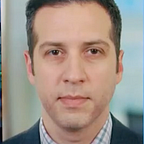What Buffett and Miller Got Right and Wrong About the Airlines
By James Cakmak and Ryan Guttridge
Two investment titans — Warren Buffett and Bill Miller — are at odds on what to do with the airline stocks. The former is no longer a proponent of investing, while the latter suggests it’s a bet against hope if you don’t.
Here’s their take:
BUFFETT: “I don’t know that three, four years from now people will fly as many passenger miles as they did last year. You’ve got too many planes”
MILLER: “If you don’t own the airlines, then you’re making a bet against the vaccine”.
Buffet is clearly stunned at the speed of change and Miller assumes the pre-Covid playbook still applies.
So who’s right? Both are. But both also miss answering the most important question.
This is not about if people will fly again. They will. This is about how businesses operate and people behave in the future.
The critical question then is this: Do demand thresholds settle at materially different levels in a post-Covid world?
For airlines, the answer is definitely maybe. Accordingly, that whole sector is a no-fly zone.
Take flying, for instance. If travel was unpleasant before, how will it be now, better or worse? Now imagine spending even more time during screening and wearing a mask for hours. Think about waiting in lines to enter your hotel or office buildings, riding on elevators, and social distancing during happy hours. Once you add in the extra hassle, that Zoom meeting starts looking a whole lot better.
Evaluating the investment landscape always requires an understanding of the economic playing field. When the rules of the game change the recent past no longer provides a workable guide for how companies operate in the future.
From an investment point of view, the key is determining which companies can fully adapt to the shifting landscape and which can’t or stubbornly cling to the old paradigm.
Disney is a perfect example of this dichotomy. They have one foot in the future and the other in the past. While we think they still have the chance to remain successful, it will require a painful transition. It remains to be seen if management fully appreciates the degree of change needed.
These kinds of disruptions where industries are struggling to adapt to a new lower set of operational averages is a battle that can’t be won unless you go all in.
Mankind has an uncanny ability to adapt and a vaccine will bring groups of people back together again, including on airplanes. But here’s the thing. Once companies and consumers get a taste of more time on their hands and working in a distributed fashion, it’s going to make it that much harder to go back.
For society, this is a great thing. The future has been pulled forward. We think the magnitude of this change is unlike any of us have seen in our lifetimes.
In fact, we anticipate productivity gains that eclipse the industrial revolution.
Buffett seems to understand this. For him, it’s about the predictability and sustainability of cash flows.
Consider his 2013 investor letter. In it there’s the story of a farm that he purchased on the cheap during a real estate fueled debt bubble. He understood it’s a good deal because volatility didn’t matter. Good years always follow bad and vice versa. Over time that generates a positive return.
For airlines, the challenge is no one knows what the new level of demand will look like when all is said and done. Although good years will almost certainly follow the bad in terms of flying, the behavioral shifts are likely to be so strong it’s virtually impossible to determine how good those good years will actually be.
Buffett knows that he doesn’t know.
Miller, meanwhile, is betting on hope. He’s absolutely right we’ll beat this thing and people will start flying. However, we have no idea how much flying will take place. Both facts can be true at the same time.
When it comes to projecting the future, we’re reminded of the past and the turn of the 20th century. During that time, the steel companies that built the railroads comprised the majority of components in the Dow Index. For the subsequent two decades, though, the Dow experienced 70% turnover in each period from the companies building railroads to the ones using them.
Today, take a look at Jim Cramer’s Covid Index. It’s home to about 100 stocks that can weather the storm and represent approximately $11 trillion in market capitalization.
Based on the S&P’s $27 trillion in aggregate value, is a 60% turnover here out of the question? We don’t think so.
Coming full circle back to the airlines, both points from Buffett and Miller are correct. However, both are incomplete. Don’t underestimate the degree of behavioral change we are undergoing, because it saves people time.
If you want to invest in the airlines, we think Richard Branson may have had the best advice of all.
“If you want to be a millionaire, start with a billion dollars and launch a new airline”.
Clockwise Capital is an asset management firm with a private equity approach to the public markets. We focus on the meaning of time and the role it plays in people’s lives. We believe the essence of a great investment resides in the ability of a company to either save their customers time, or improve its quality. We understand how technology evolves to drive these two factors, which we believe define human progress. As a result, we search for securities with cyclically depressed valuations whose companies save time, thus using secularly advantaged industries to build a concentrated portfolio. With each series of investments our goal is to optimize edge, maximize return, while also minimizing correlation. This allows our portfolio to maintain a liquid, low duration fixed income balance, ready to capitalize on market volatility, while still generating market beating performance.
